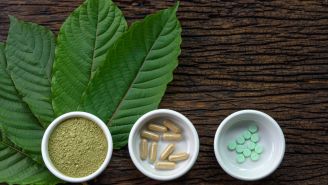Updated on June 10, 2022.
Whether you’re curling up with a cup of joe or getting comfy with a cold brew, studies show your daily coffee habit may impart numerous health benefits. Research has linked low to moderate java intake to more energy, better focus, and a brighter mood, along with headache and constipation relief.
And that’s not all. It’s also tied to a decreased risk of developing several medical conditions, including Parkinson’s disease, type 2 diabetes, heart disease, and even certain cancers.
But while a few cups of coffee may boost your well-being, it is possible to have too much of a good thing. Excess coffee consumption is associated with multiple short- and long-term health issues, especially for people who are particularly vulnerable to the effects of caffeine.
So how much is too much, exactly? First, it helps to understand two things: what experts mean by “a cup of coffee,” and the ways in which coffee affects everyone a little differently.
Defining “a cup of coffee”
When healthcare providers (HCPs) caution against drinking coffee in excess, they’re often concerned about the consequences of caffeine overload. Caffeine is a stimulant found in some beverages, foods, and medicines that affects your nervous, digestive, and cardiovascular systems, among others. The caffeine content of coffee can vary from cup to cup, depending on how it’s made. The type of bean used, processing method, and length of brewing time all play roles—and that’s before you dilute it with milk, sugar, and other flavorings.
“A Frappuccino doesn’t have the same components of a regular instant coffee or espresso,” says Miriam Zylberglait, MD, director of the internal medicine residency program at Aventura Hospital and Medical Center in Aventura, Florida. “Even minimal changes in the way that you prepare your coffee may affect the components you are absorbing and the effects you experience.”
That said, when experts discuss the health effects of coffee, the unit they’re frequently referring to is an 8-ounce cup of regular brewed java, taken black. On average, one cup of coffee made this way contains about 100 milligrams (mg) of caffeine, though it may have anywhere from 80 to 200mg.
Why coffee’s impact is different for everyone
However your coffee is prepared, you’ll typically feel its effects within an hour of your first sip and continue to experience them for several hours afterward. The severity of those effects—and the amount of time they last—vary from person to person, and hinge on several characteristics. These include, but are not limited to, your:
- Gender
- Age
- Body weight
- Genes
- Ethnicity
- Medical and mental health conditions
- Medications
Your caffeine tolerance plays a role, as well. People who abstain from coffee are typically more susceptible to its influence than habitual drinkers.
The drawbacks of too much coffee
Since caffeine content varies by cup and the substance affects each person differently, declaring a specific amount of coffee to be universally unsafe is difficult. However, capping caffeine intake at 400mg daily is a good bet for many adults without medical issues. The U.S. Food and Drug Administration suggests that amount—found in about four or five 8-ounce cups of coffee—isn’t generally linked to negative health outcomes.
That said, many people can drink even more coffee without difficulties, while others may experience problems after a single cup. This is because people differ in how sensitive they are to caffeine and how fast their bodies process it. “If one cup of coffee makes you feel anxious or nervous or doesn’t allow you to sleep, and it makes you feel bad,” says Dr. Zylberglait, “that’s too much coffee.”
In the short-term, excess coffee can cause a variety of symptoms, including jitters, tremors, anxiety, nausea, touchiness, headaches, and feelings of unhappiness. You may also have to urinate more often; those urges can be strong, abrupt, and may involve some leakage. Too much coffee can also trigger sleep issues like insomnia, especially if you drink it within hours of bedtime.
Heavy caffeine consumption may briefly bump up blood pressure and heart rate, as well, which could present problems in people with existing cardiovascular disease—like those prone to arrhythmias. “In these cases, the heart is not beating in a regular way, and that may cause cardiac complications,” says Zylberglait.
It should be noted, though: Coffee use is not considered a risk factor for heart disease, and low or moderate caffeine intake is not known to raise the risk of cardiovascular issues like stroke and cardiac arrest. In fact, multiple studies have linked moderate coffee consumption to a reduced risk of heart disease and stroke. Still, if you have cardiovascular troubles, ask your doctor about a safe amount for you.
The situation is similar with cognitive health. While having a few cups a day has been repeatedly tied to a lower risk of dementia, drinking coffee to excess may increase your chances. For example, in 2021, a large study published in Nutritional Neuroscience found that people who drank six or more cups of daily coffee had a 53 percent higher risk of dementia than those who had one or two cups.
Over longer periods of time, high coffee intake has also been linked to decreased bone density and more bone fractures in women, especially if they’re not getting adequate calcium. Some studies have associated excess caffeine with anxiety symptoms, as well.
When to speak with a medical professional
To ensure there are no negative interactions, people taking medication or supplements should discuss coffee consumption with their HCP. Patients with certain health conditions are also well-advised to broach the topic with their provider—particularly people with:
- Heart disease or high blood pressure
- Sleep disorders
- Anxiety disorders
- Digestive issues
- Chronic headaches
- Bladder issues
Pregnant and breastfeeding women should always check with an OBGYN, as well. Though studies suggest a moderate amount of caffeine is not linked to premature birth or miscarriages, there is some concern at higher levels of consumption. The American College of Obstetricians and Gynecologists recommends that these women limit their caffeine intake to less than 200mg (about 2 cups) per day.
Kids should steer clear of caffeine in general, recommends the American Academy of Pediatrics, as it’s linked to disruptions in development.
Tips for cutting back
If you want or are advised to cut back on java, try gradually reducing your intake each day or switching to decaf; it contains some caffeine, but not nearly as much as regular coffee. When you buy a cup away from home, read labels and check websites for nutritional information. Try not to load up on milk, sugar, and other add-ins. They increase fat and calories while potentially neutralizing some of coffee’s potential health benefits.
You may feel withdrawal symptoms while reining in your consumption, especially if you quit cold turkey. Among other issues, many new abstainers report headaches, sleepiness, and a prickly temper within those first few days. However, symptoms are typically mild and fleeting, and frequently disappear within the week.
Ultimately, when it comes to coffee use, shoot for moderation, take note of unusual changes in your response—and remember that it affects everyone a little differently.
“Enjoy your coffee, but pay attention to your body, recognize symptoms and know when to stop,” says Zylberglait. “If you have any doubts, ask your physician for a recommendation."







